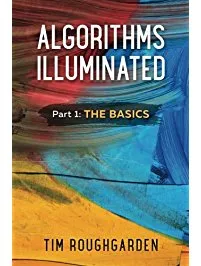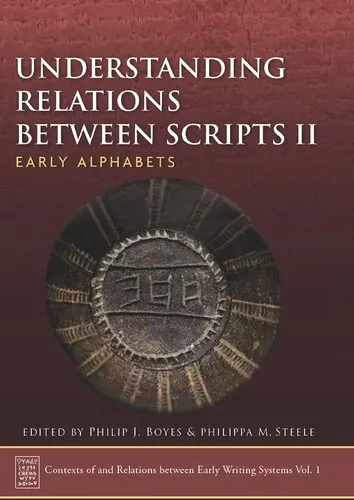The Routledge Handbook of Scripts and Alphabets
4.5
Reviews from our users

You Can Ask your questions from this book's AI after Login
Each download or ask from book AI costs 2 points. To earn more free points, please visit the Points Guide Page and complete some valuable actions.Related Refrences:
Introduction to 'The Routledge Handbook of Scripts and Alphabets'
Written by George L. Campbell, 'The Routledge Handbook of Scripts and Alphabets' is an authoritative yet accessible reference guide offering a comprehensive exploration of the world’s writing systems. This book is a treasure trove for linguists, philologists, historians, and anyone fascinated by how diverse scripts have shaped communication across humanity’s complex cultures. By systematically addressing the evolution, structure, and significance of various scripts and alphabets, this handbook serves as both a scholarly resource and an engaging journey into the remarkable diversity of written human expression.
Far more than a simple catalog of scripts, this book investigates the intricate relationships between language, society, and script development. From ancient cuneiform and hieroglyphs to modern writing systems like the Latin and Cyrillic alphabets, this text covers an expansive range of cultures and time periods. Through in-depth explanations and thoughtful categorization, it highlights the technical features and cultural contexts that define each script, making the material both academically robust and accessible to non-specialist audiences.
Detailed Summary
'The Routledge Handbook of Scripts and Alphabets' begins with an overarching explanation of what constitutes a script or an alphabet, delving into their foundational structures. The book extensively maps the evolutionary trajectory of writing systems, detailing historical developments and milestones in the fields of linguistics and communication studies.
It methodically categorizes scripts into broad families based on their historical and linguistic relationships, such as Semitic scripts, East Asian scripts, and Indic scripts. Attention is given to orthographic principles, the role of phonetics, and the reconstruction of extinct writing systems. The book not only documents currently used writing systems but also explores archaic scripts, providing valuable insights into how these have influenced contemporary forms of written language.
Core chapters focus on individual writing systems, outlining their origins, historical trajectories, technical characteristics, and modern adaptations. Students and researchers alike will benefit from the detailed descriptions of lesser-known scripts, fostering a deeper appreciation of the diversity of human ingenuity in communication. The book is particularly noted for its engaging explanation of the interplay between spoken language and written representation, drawing upon examples from over 200 scripts and alphabets across the globe.
Key Takeaways
- A comprehensive guide to over 200 scripts and alphabets from diverse linguistic and cultural backgrounds.
- Insight into the historical evolution of writing systems, from prehistoric symbolism to modern digital typography.
- In-depth analysis of technical features, including phonetics, diacritics, and orthographic conventions.
- Exploration of the sociocultural role of scripts in shaping human civilization and preserving history.
- A valuable resource for linguists, students, and enthusiasts interested in the cross-disciplinary study of language and writing.
Famous Quotes from the Book
"The written word is humanity’s attempt to grasp the intangible; a script is not merely a tool for communication but a mirror of civilization itself."
"Scripts are bridges between worlds—linking ancient knowledge with modern understanding, past civilizations with present societies."
"In every flourish of ink or tap of a key, there lies the legacy of the countless scripts and alphabets that came before."
Why This Book Matters
In an increasingly globalized world, understanding the roots and development of the writing systems that underpin communication is both empowering and enriching. 'The Routledge Handbook of Scripts and Alphabets' serves as a cornerstone for such learning. It brings together decades of scholarship in an accessible format that caters to both experts and general readers. By emphasizing the cultural and historical contexts of scripts, this book fosters a greater appreciation for the ways that writing systems have influenced—and continue to influence—human history.
Additionally, the book highlights the importance of protecting endangered scripts and languages, underscoring the urgency of cataloging and preserving the birthrights of countless communities around the world. As many traditional writing systems face extinction in the digital age, this work stands as a powerful reminder of their intrinsic value to human heritage.
Whether you’re exploring the intricacies of Japanese kana, uncovering the nuance of Arabic calligraphy, or studying the revival of long-forgotten alphabets, this book will guide you with academic rigor and passionate storytelling. It is a testament to the infinite inventiveness of human cultures and their quest to make thought visible.
Free Direct Download
You Can Download this book after Login
Accessing books through legal platforms and public libraries not only supports the rights of authors and publishers but also contributes to the sustainability of reading culture. Before downloading, please take a moment to consider these options.
Find this book on other platforms:
WorldCat helps you find books in libraries worldwide.
See ratings, reviews, and discussions on Goodreads.
Find and buy rare or used books on AbeBooks.
1397
بازدید4.5
امتیاز0
نظر98%
رضایتReviews:
4.5
Based on 0 users review
Questions & Answers
Ask questions about this book or help others by answering
No questions yet. Be the first to ask!













